Convertible chairs: what are they and how to choose?
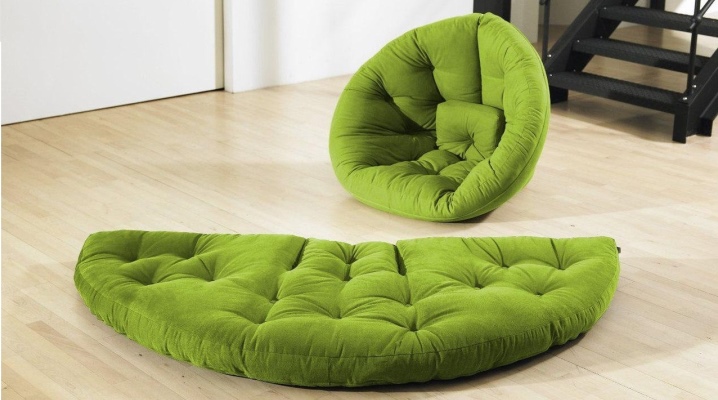
In the modern world, great importance is attached to the practicality of any items, even furniture today must be able to perform various functions. This is especially true of armchairs, which today are produced in a variety of transformer models and can perform various functions depending on the needs of the owners.
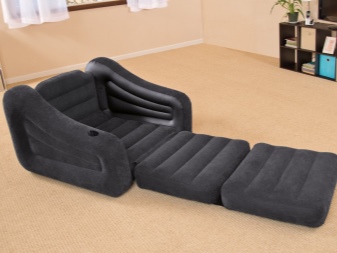
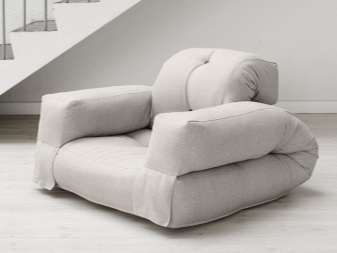
Peculiarities
A standard classic chair assumes a rigid frame, which has a fixed shape for greater reliability and durability. It does not have any mechanisms for changing the position of individual parts, but a transforming chair is designed to change this situation. Such furniture has ample opportunities for adjusting the position of the back, handrails or footrests, thanks to which the product can change beyond recognition, turning, for example, into a kind of couch. Transformation can be envisaged for other purposes as well - for example, some models fold to a very compact size, which makes them easier to store and transport. Of course, in the pursuit of convenience, manufacturers do not forget about the aesthetic side of the issue, making their products visually attractive.
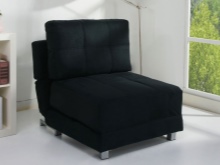
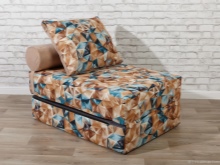
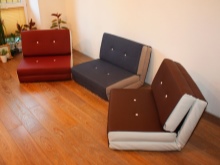
Such a design is very convenient in conditions of small spaces or a limited budget, when one piece of furniture must be able to perform the functions of different products. Thanks to the use of high-quality and diverse materials, manufacturers manage to achieve a variety and individuality of models that can fit into any interior, while their service life can be very long. Much attention is paid to ease of maintenance - in most cases, folding and unfolding is within the power of even an average teenager.
Although transformers are often purchased in order to save money, it is still not worth choosing the cheapest solutions, otherwise the quality of the regulated connections may fail.
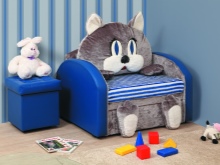
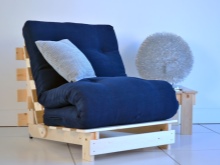
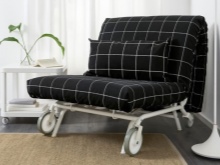
Species overview
The concept of a transforming chair is so vast that completely different furnishings can be hidden under the same term. Let's try to briefly understand what such a structure can be.
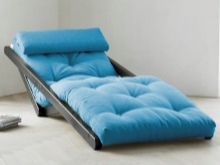
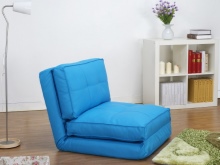
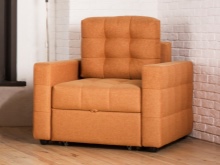
Recliners
This mysterious term hides that folding chair that every ambitious person dreams of - this is the very throne on which any self-respecting boss sits. The folding product allows resting in a sitting, reclining or recumbent position, it is practically a folding bed, but with expensive upholstery and the best fillers. The most expensive options have an electric mechanism; the 3-in-1 chair is folded out at the touch of a button. It is also possible the presence of built-in "bonuses" in the form of a mini-bar, speakers or a massager.
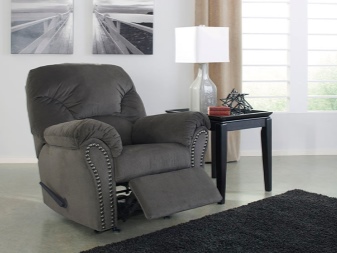
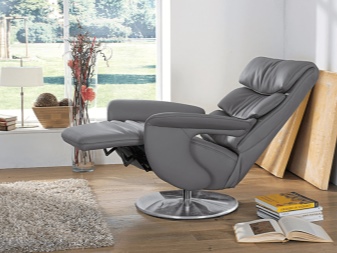
Chair-beds
In essence, such furniture is very reminiscent of a folding sofa, which during the day is intended, rather, for sitting, and at night its folding mechanism allows you to lengthen the seat, turning it into a full-fledged bed. The chair is made according to the same principle, only it is much narrower: during the day only one person can sit in it, at night it turns into a very compact sleeping place, inferior even to a single bed. Such furniture is appropriate only in conditions of great cramped conditions, it can be used as an additional guest place.
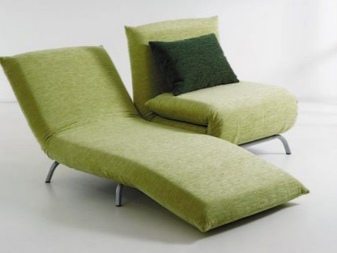
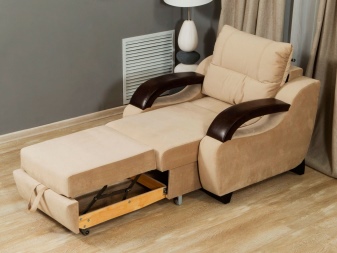
Frameless
This is one of the most original solutions in the world of armchairs, which has appeared literally in recent years.In fact, it is a soft and thick mattress that, if necessary, can be spread right on the floor to accommodate numerous guests. With the help of special fasteners and thanks to a specific cut, this mattress is folded so that it acquires a vertical back and turns into a folding chair. The inconvenience lies in the absence of legs in almost all models, and it is advisable to rest the back at least on the wall.
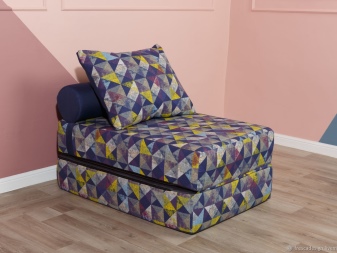
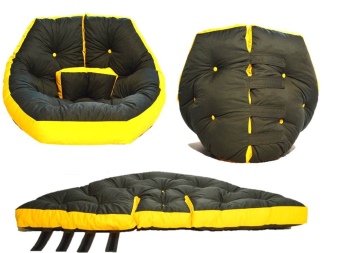
Chaise lounges
This type of furniture has probably been seen by any person who has ever rested on an equipped beach - at home, chaise lounges look about the same as on the banks of water bodies. In fact, this is a variant of a folding bed, the head of which can be lifted, taking an upright position and serving as a back.
Throwing it back, you get an almost complete analogue of an ordinary clamshell in the form of a fabric stretched over a frame located around the perimeter.
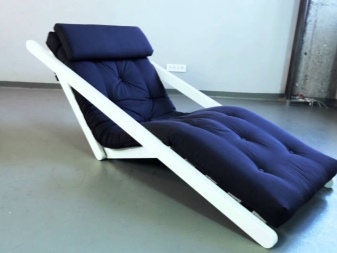
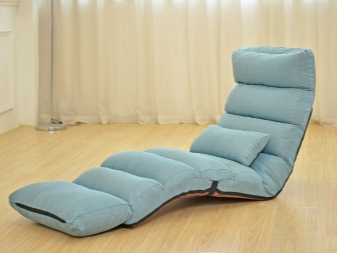
Other
The imagination of modern designers knows no boundaries and is limited only by the lack of consumer demand, therefore on sale you can see furniture that, in one case, serves as an armchair and almost anything else - armchairs are a prime example... Modular solutions may involve a slightly more complex transformation mechanism up to the dismantling of the frame and subsequent reassembly in a different form - this solution is especially important if the owner of the furniture is a rapidly growing child. Consequently, a chair that does not have other furniture functions, but is capable of growing with the owner, can also be called a transformer.
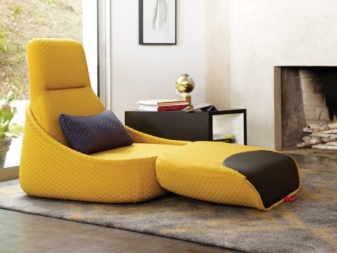
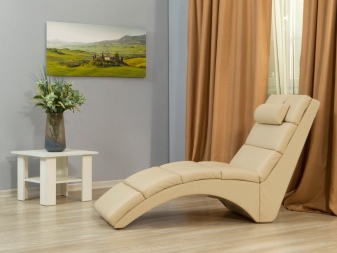
Materials (edit)
The transforming chair, due to its versatility, is used much more actively than its monofunctional counterparts, therefore it is very important to pay attention to the materials from which it is made. High-quality material is able to extend the service life of such a product to more than ten years, while low-grade raw materials will inevitably lead to rapid wear and tear of the purchase.
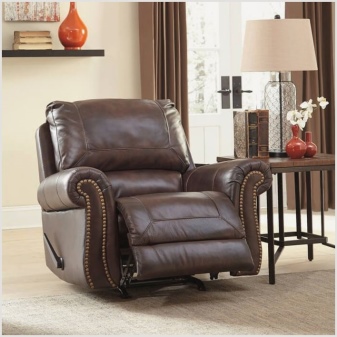
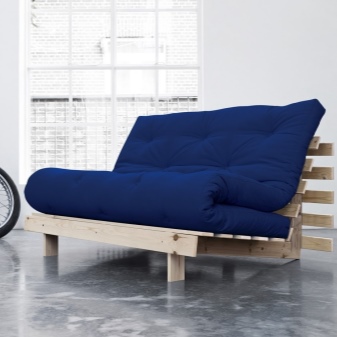
Wireframes
For transformers, the main load falls on the frame - due to its ability to transform, it cannot even theoretically be integral, therefore it should be chosen especially carefully. The options are as follows:
- natural wood - undoubtedly the most reliable and durable option for several decades to come, while also ecologically safe, but, alas, the most expensive;
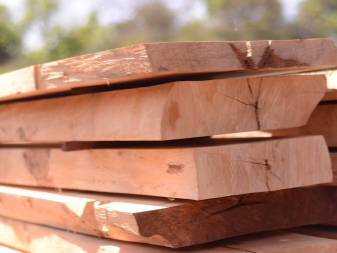
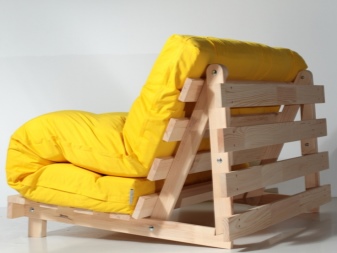
- MDF - wood chips, pressed under high pressure, have most of the features of natural wood with a slightly reduced strength and durability, but also with more loyal prices;
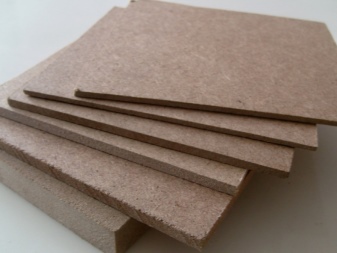
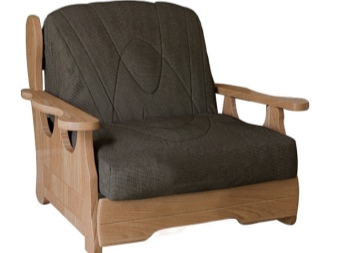
- Chipboard - the same wood shavings, but glued, because of which it cannot boast of either strength and durability, or even environmental safety, but it is often preferred in pursuit of maximum (and often unjustified) savings;
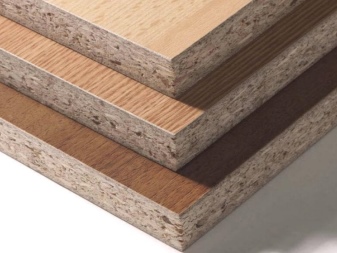
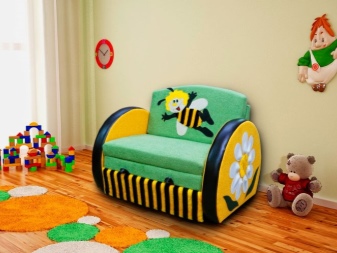
- plastic - modern material, the main advantage of which is the successful resistance to moisture and the destructive action of pests.
At the same time, there is a huge run-up both in cost and in quality of the material.
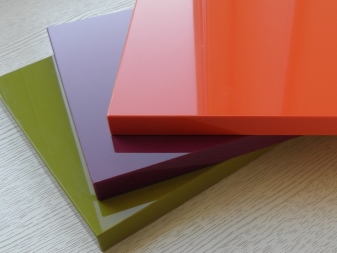
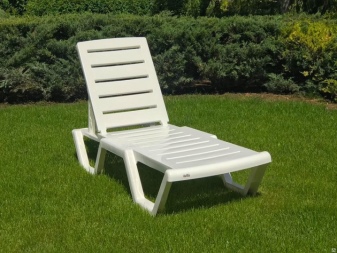
Excipients
The filling of the space between the upholstery and the frame determines the softness of the seat, as well as how long the chair will maintain its initial level of comfort. Unfortunately, in most cases, the consumer does not have the opportunity to check what exactly the chair is stuffed with, so it remains to rely only on the promises of the tag - because of this, it makes no sense to consider specific options, since you will not be able to assess their durability. The best way to check the quality is by testing by trying to sit in the chair you like in the store. Practice shows that a manufacturer who has spent money on a good frame and upholstery is unlikely to save on filler and ruin his reputation.
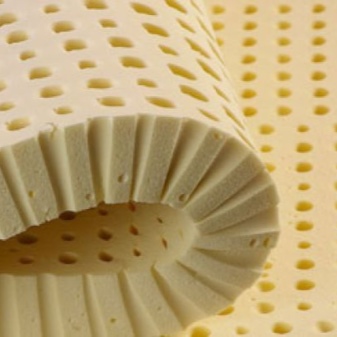

Upholstery
Not only the comfort of the owner depends on the material of the upholstery, but also how the furniture looks after years of use, whether it can be effectively washed and cleaned. Here, too, various options are possible, but you will have to choose from several categories:
- plain fabric - the cheapest solution, which will result in quick problems in the form of easy absorption of dirt, difficulty in cleaning and low resistance to mechanical stress;
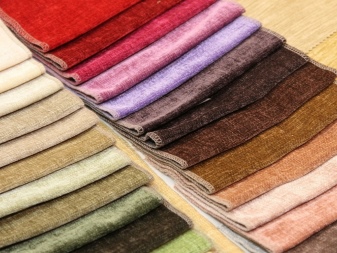
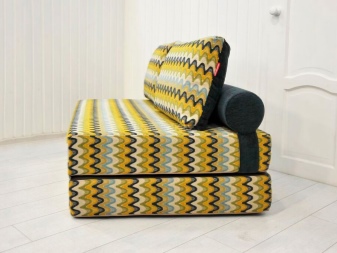
- improved textiles - special fabrics with dirt-repelling properties and increased mechanical resistance, such a solution will cost significantly more, but will allow you to preserve the original appearance of the furniture for a longer time;
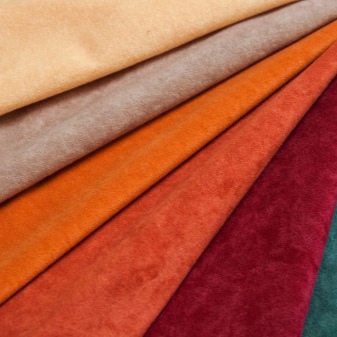
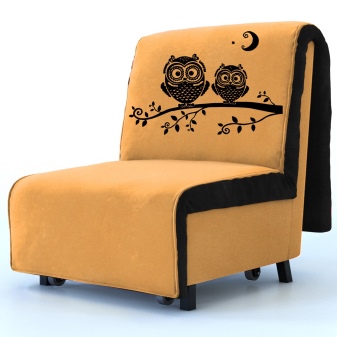
- leatherette - a cheaper analogue of genuine leather, differs from the "original" for the better in unpretentious care and increased resistance to wear, but vulnerable to scratches and cuts;
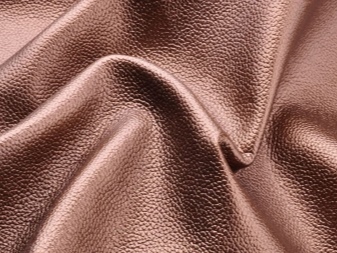
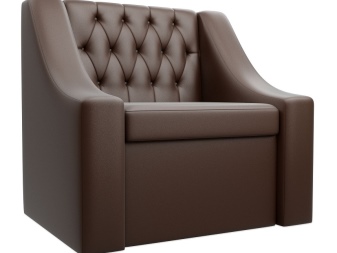
- Genuine Leather - an elite material, the cost of which will scare off most consumers, is characterized by the highest resistance to wear and tear and aesthetics if you need special care.
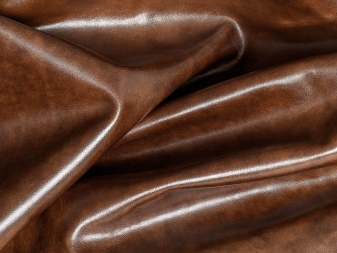
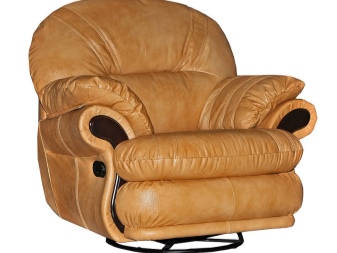
Design
When deciding on a transforming chair, it is important to build on the design features of the room in which it is located. In classic interiors, for example, a certain severity of shades is important, the outlines of furniture should be predominantly even and with right angles, without bends and irregular geometry. In a classic design, even a transforming chair should look expensive. - if you can't afford the most expensive model, look for a cheaper copy.
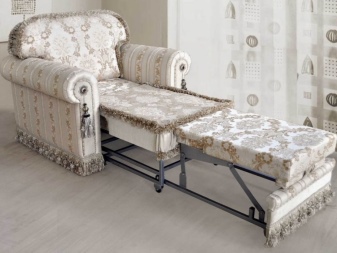
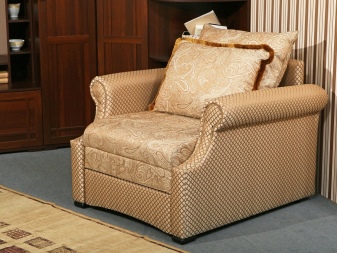
Against, modern interior focuses on some kind of "zest", therefore rounded lines and irregular shape will be considered only advantages... Here you can experiment more broadly, giving preference to the brightest tones.
Try to move away from banal, long-known materials in favor of something that will look futuristic.
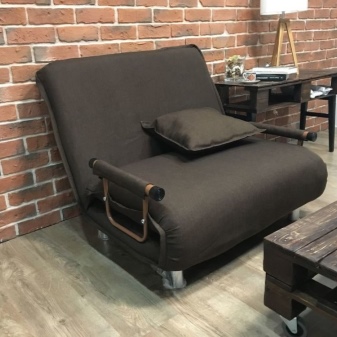
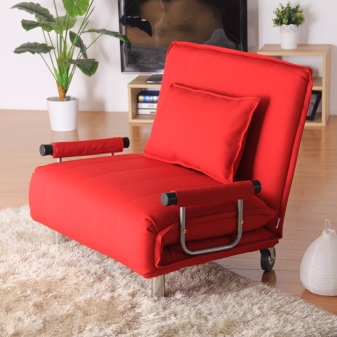
Dimensions (edit)
The choice of a transforming chair in terms of dimensions strongly depends on what additional functions are provided for a particular model. If we are talking about furniture that turns into a bed, then the minimum dimensions of a berth are 160 by 60 cm, but this space is only enough for a child. An adult needs at least 180 by 80 cm, but even then this is only the minimum limit.
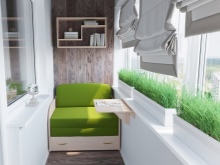
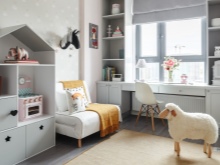
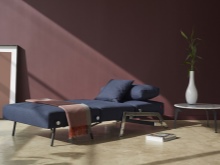
Please note that most chairs with armrests are listed with the width of the armrests, and they can significantly limit seating space. By purchasing a chair with a width of 90 cm, you get a "useful" width of only 60-70 cm at the exit., which in some cases can be a problem.
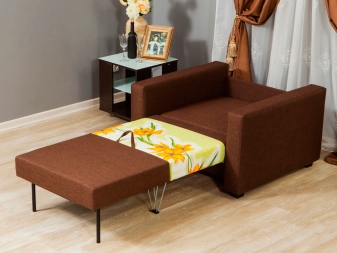
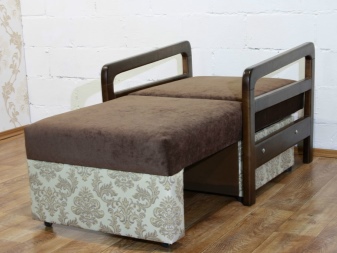
How to choose?
Determining the choice of a specific model, pay attention to the fundamental criteria, which can be globally divided into three groups.
- The chair should provide the expected level of comfort. If you are using it for sleeping or relaxing, the product should be as comfortable as possible; models for feeding the passenger at the table should be made of non-marking materials.
- Aesthetic qualities cannot be relegated to the background - furniture should not look like a foreign body in the interior of a house or summer cottage. Full-fledged comfort is out of the question if you visually do not like the place where you are resting.
- All materials, parts made from them and the transformation mechanism must convince of their reliability and durability. However, it is better not to believe the visual and tactile impressions - ask the seller to show the documents confirming the quality.
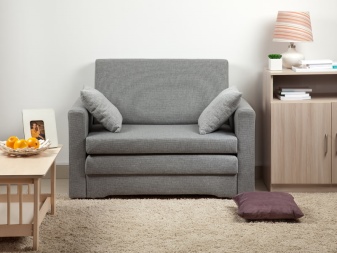
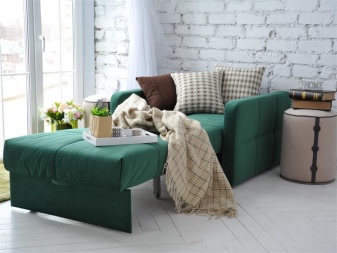
Beautiful examples in the interior
A chaise longue chair is not really about saving space, since such a piece of furniture is rarely very compact, but at the same time it alone replaces two overall pieces of furniture.
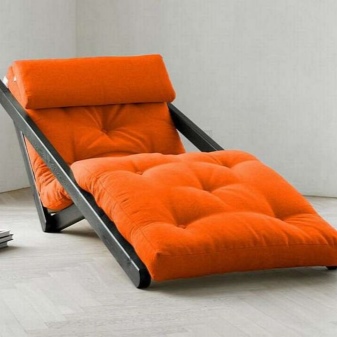
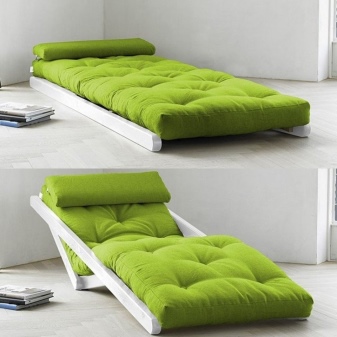
The frameless chair will surely appeal to people who love an informal atmosphere. In the form of an armchair, it is very cute and cozy, and in fact it can be expanded to the size of a full-fledged mattress, leaving the whole close company for the night.
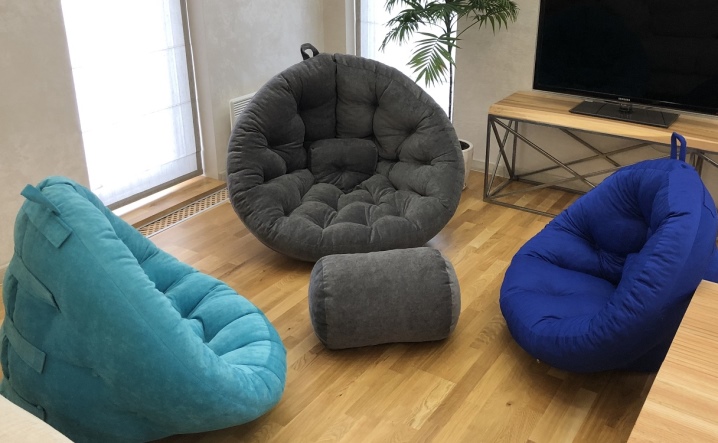
The armchair-bed only when folded is an example of aesthetics, but when unfolded it will be hidden by bed linen. In addition, such furniture is not for beauty, but for life.
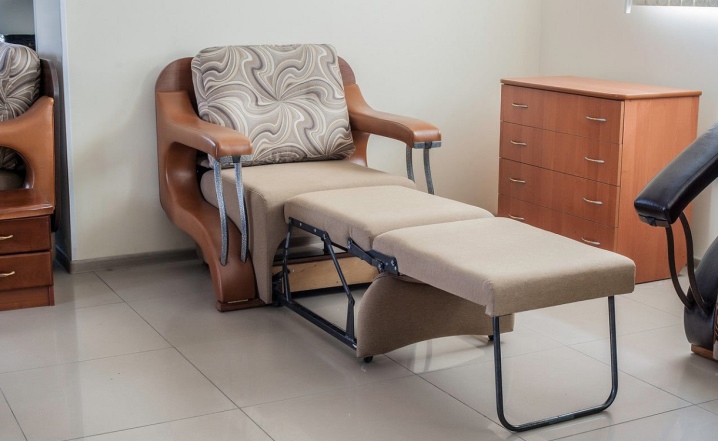
For information on how to make a folding transforming chair out of plywood, see the next video.













The comment was sent successfully.